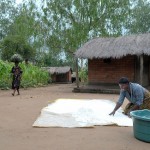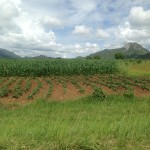A large proportion of Malawian households are caught in a trap where poverty and food insecurity reinforce one another and where periods of food deficits and severe food crises are frequent occurrences. In recognition of this, the Malawian government has since 2005/06 implemented a large-scale Farm Input Subsidy Program (FISP), which supplies half of smallholder […]
Announcing National FISP Symposium July 2014
In view of a wide diversity of research findings and changing socio-political conditions since the FISP started eight years ago, the Lilongwe University of Agriculture and Natural Resources (LUANAR) in collaboration with the Malawi Strategy Support Program (MaSSP) International Food Policy research Institute (IFPRI) and several collaborating partners is organizing a one and a half […]
Growth, Poverty and Nutrition Linkages and the Role of FISP
Since its inception in 2005/06 Malawi’s Farm Input Subsidy Program (FISP) has been at the center of national and global interest. After its initial success in transforming Malawi from a food insecure country to a surplus producer of maize, many African countries have followed suit, modeling their own input subsidy programs on the FISP. However, in […]
Policy Note 19: The Challenge of Africa’s Nitrogen Drought: some indicators from the Malawian Experience
This MaSSP Policy Note by Stephen Carr describes how years of continuous cultivation with little or no use of external inputs to restore soil nutrients has resulted in a situation in which crop production in a number of African countries is now limited by nutrient deficiencies – nitrogen, in particular, which is crucial to healthy plant growth. This widespread problem […]
Policy Note 18: Malawi’s Farm Input Subsidy Program: Where do we go from here?
Malawi’s Farm Input Subsidy Program (FISP) has dominated the agriculture and food security policy landscape in the country since its inception in 2005/06. FISP is now credited—or blamed, depending on one’s viewpoint—for a revival of agricultural input subsidies across Africa as a tool to raise crop productivity and reduce poverty and food insecurity. This follows global reporting […]



